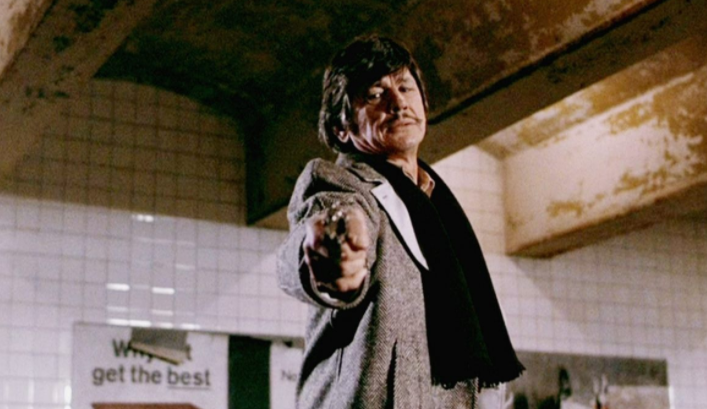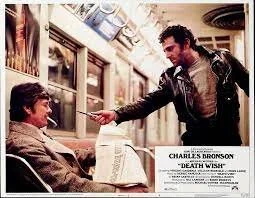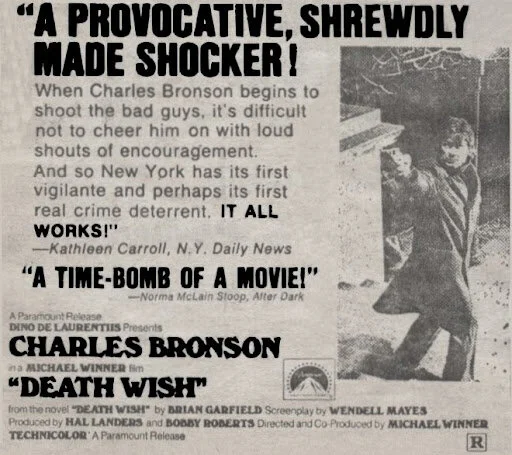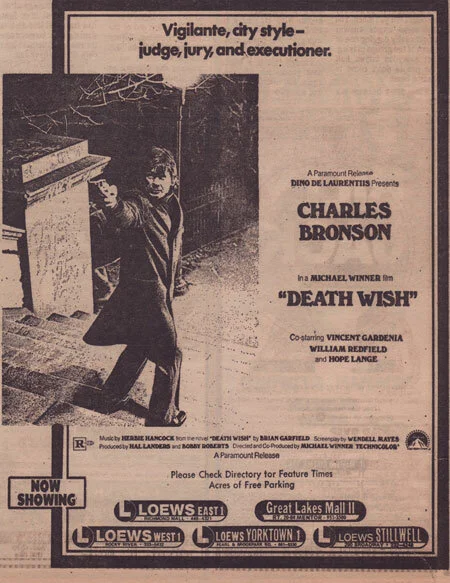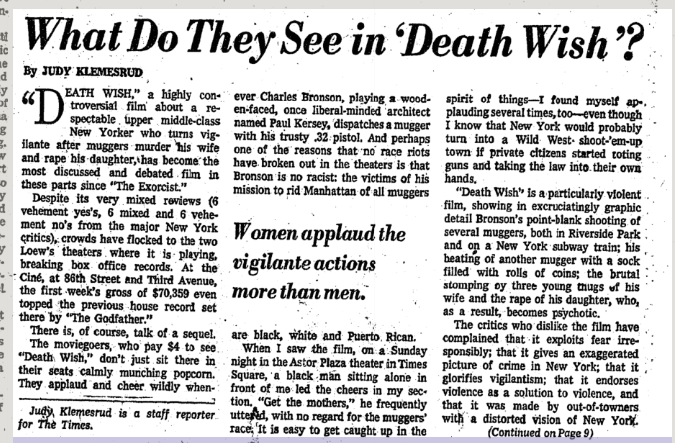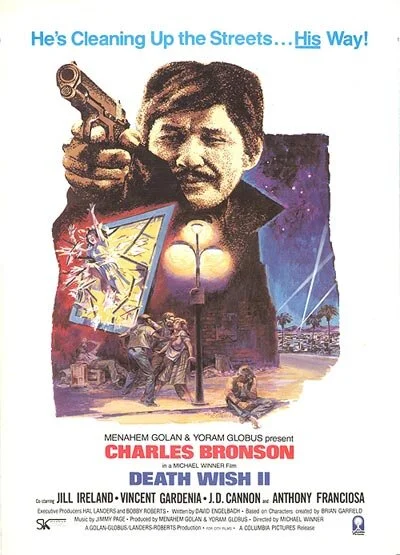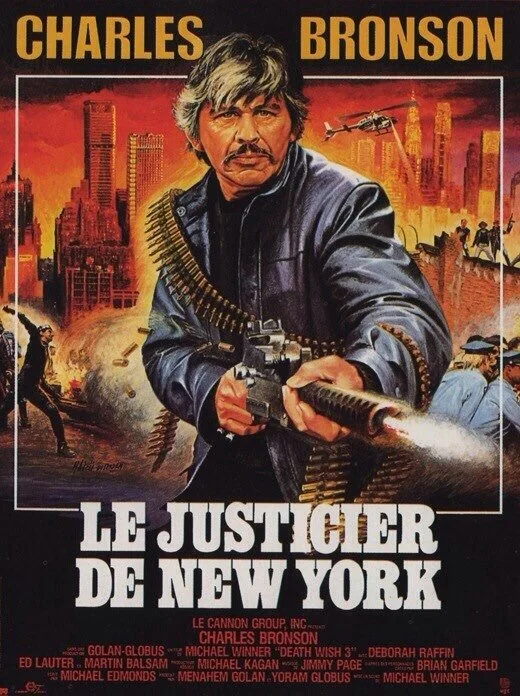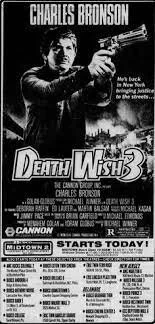
Episode 6-
'Judge, Jury, and Executioner (Part One)'
Subscribe on Apple Podcasts, Spotify, Overcast, or your podcatcher of choice.
How a grimy New York exploitation movie prompted a wave of sequels, rip-offs, and imitators - on- and off-screen.
The 1974 Charles Bronson vehicle Death Wish is far from the best New York movie of the era – but it may be the most influential. Its story of a mild-mannered upper-class Manhattan resident who responds to the rising crime rates by taking the law into his own hands, hitting the streets and taking out muggers and criminals of various types (but mostly black, brown, and poor) hit a nerve in the city, and across the country.
Its influence was reflected not only in movies – where it beget a series of sequels, imitators, remakes, and rip-offs – but in the culture, where its noble image of the one-man justice squad often resulted in messier outcomes than onscreen. And it altered the lives of several of its participants, including star Bronson (who found himself typecast for the rest of his career) and Brian Garfield, author of the book that inspired it, who spent the rest of his life crusading against the film adaptation’s mangled message.
We’ll explore all of that and more in this two-part episode. Our guests for part one are film historians and pop culture critics LaToya Ferguson, Matt Prigge, and Paul Talbot, as well as filmmaker (and Death Wish 3 co-star) Alex Winter.
SHOW NOTES
Audio from Death Wish (1974), directed by Michael Winner.
Matt Prigge was interviewed on April 25, 2021. Matt is is a journalism professor with bylines at Uproxx, Vulture, The Guardian, and Polygon. You can follow him on Twitter @mattprigge.
Paul Talbot was interviewed on April 28, 2021. He is the author of Bronson’s Loose! On the Set of the Death Wish Films, a key source for this episode, as well as Bronson’s Loose Again! On the Set with Charles Bronson.
LaToya Ferguson was interviewed on May 15, 2021. She has bylines at AV Club, Variety, and many more, and is the managing editor of Ronda-Rousey.com. She also co-hosts the “Angel on Top” and “AMPire Diaries” podcasts. You can follow her on Twitter @lafergs.
The Michael Winner memoir Matt Prigge references is Winner Takes All: A Life of Sorts.
Vincent Canby’s original New York Times review is here. Roger Ebert’s review is here. The Variety, New Yorker, and New York Daily News reviews were pulled from the Death Wish archive in the clippings file in the Billy Rose Theater Division of the New York Public Library for the Performing Arts.
Canby’s follow-up piece, “Death Wish Exploits Fear Irresponsibly” is here; Judy Klemesrud’s “What Do They See in ‘Death Wish’ is here.
Background on John Lindsay’s liberal Republicanism here.
Background on the production of Death Wish from Bronson’s Loose!
Alex Winter was interviewed on April 29, 2021. His latest documentary, Zappa, is now available on Blu-ray, DVD, and POV; it’s also streaming on Hulu. You can follow him on Twitter @winter.
Audio of Michael Winner at work from a BBC set report on Death Wish II, which you can watch here.
Quote from (the wonderful) Branding New York: How a City in Crisis Was Sold to the World, by Miriam Greenberg.
Audio from Taxi Driver, directed by Martin Scorsese.
More on Golan, Globus, and Cannon Films (and their Death Wish movies) in The Cannon Film Guide: Volume 1, 1980-1984 by Austin Trunick.
The “accident-prone,” “bouncy horror comedy” and “it has a rape in it” quotes from Bronson’s Loose!
“Kill quip” audio from Death Wish II (1981), directed by Michael Winner, and Death Wish IV: The Crackdown (1987), directed by J. Lee Thompson.
Additional audio from Death Wish 3 (1985) and Death Wish (2018). Eli Roth declined to be interviewed for this episode.
Music:
The Insider - “The Great Break Off,” “Right”
Ketsa.- “Tribe”
Inaequalis - “Backhander”
Maarten Schellekens - “Mallet Play”
Revolution Void - “The Simulation Hypothesis”
Opening Theme:
Our opening theme features sound from the following films: Coogan’s Bluff, Sweet Smell, Quick Change, The Freshman, Death Wish, Little Murders, Taxi Driver, 25th Hour, and The Taking of Pelham One Two Three.









